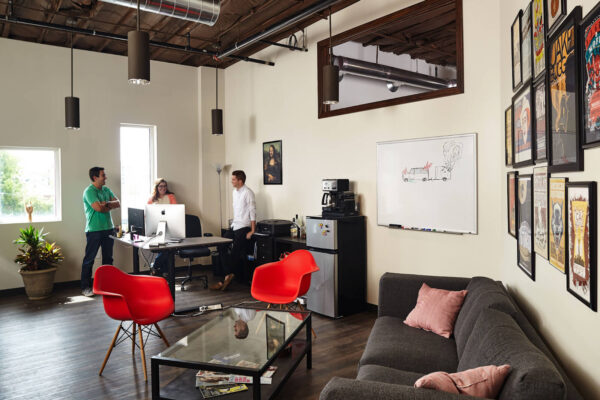Over half of today’s workforce has fully embraced hybrid work, spending part of their week working from home and the other part in the office. According to JLL’s Workforce Preference survey, 60% of respondents prefer a hybrid schedule, while 55% of workers already have a hybrid schedule—a 5% increase in hybrid workers from last year. Those who have a flexible hybrid schedule say they feel more productive than they did working fully in the office. The steady increase in hybrid workers coupled with the anecdotal evidence of higher productivity may suggest hybrid is here to stay.
But does hybrid work for everybody?
Is this the fall of hybrid work?
On one hand, company leaders still propose that working in-person is more effective and leads to better collaboration than working remotely or hybrid. In some sectors, proximity bias reigns supreme, especially for those who aspire to climb to the c-suite. Callum Borchers for WSJ points out, “Sure, you can hit your performance targets from the kitchen table and wear out the ‘raise hand’ button on Zoom. But a colleague who chats up the boss when the meeting is over and goes for a drink after hours may get ahead.” With more workers returning to the office each day, people are starting to realize that all that glitters is not gold when it comes to hybrid work schedules.
It seems that as the Great Resignation wanes, workers are more open to the idea of meeting halfway with companies instead of demanding their idea of an ideal work situation. Today, job seekers prioritize stability over flexibility. Another recent WSJ article claims, “a loss of total remote freedom, coupled with sobering economic forecasts, can make it feel like workers’ power is slipping away. Some companies sense the change and are wresting back more control over how much they cater to employees.”
Plus, instead of job seekers asking about perks at a particular company, HR startup founder Allan Jones notes that when interviewing, “Now, what candidates are asking is if the company has the financial posture to survive a recession . . . They’re thinking about security over flexibility.”
Workers want the promise of a paycheck during a potential recession rather than a monthly remote work stipend. Sacrificing fully remote for hybrid—or even in-office—is a sacrifice more people are willing to make. As a result, employers who want workers in the office, and employees who want greater workplace flexibility approach a meeting point.


How to make hybrid work
Of course, even hybrid work needs to be approached with caution; the potential to cause some workers to feel isolated and cut-off from their teammates still remains. JLL stresses that a hybrid setting, “must become an inviting and inclusive destination where each member of the work community can reliably seek mental wellbeing support, peer recognition and a sense of belonging.”
As more companies grow accustomed to the new hybrid work model, and as more employees discover their workplace preferences, it becomes more clear how we should approach the modern workplace in a way that benefits everyone. If hybrid is here to stay, companies and those in managerial positions will need to make sure everyone feels listened to. What does this mean? Open communication and open minds are more important than ever, from both parties.
When hybrid can’t work
However, some business sectors suffer from the new workplace norm.
What about businesses who can’t offer hybrid work? For smaller businesses and customer-service businesses, hybrid work simply doesn’t work. What’s more, the increase in demand for workplace flexibility hinders these smaller and customer-service businesses who can’t compete with larger corporations’ generous benefits and ability to significantly raise wages.
When non-hybrid companies search to hire new employees to fill gaps, they struggle to find and keep talent. Not only do they compete with larger businesses, but remote work also broadens the competition for workers from local to global.
Amidst current workplace expectations, small businesses may need to continue thinking outside the box about what perks they can give prospective employees to attract the talent they need. If a small business has an office at an eclectic coworking space with included perks and amenities, that could help businesses attract talent. Plus, an office at a coworking space cuts overhead costs compared to a traditional brick-and-mortar.
Bottom line for the modern workplace
So where does hybrid work land in all of this? It goes back to company and business leaders openly listening to their employees and doing their best to accommodate however they can. Additionally, workers need to be open-minded and realistic about businesses’ needs, especially in light of a potential recession.
While hybrid work is more popular than ever, it still does not remain the norm for some companies. Non-hybrid small businesses may benefit from renting a flexible private office with included amenities and minimal overhead costs, and the remaining fully remote teams can meet face-to-face as needed by booking a meeting room to collaborate on projects.


Think a private office or coworking membership might work for you? Reach out to us at Center 615 to see how we can help, or schedule a tour to see the space for yourself!







